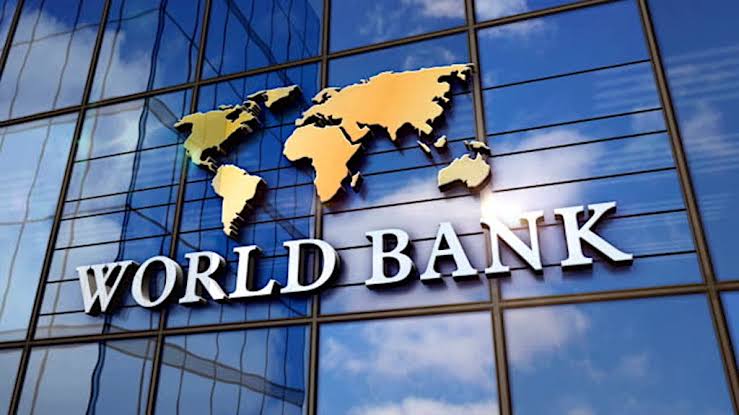- Domestic investors’ transactions hit N285.75bn in May
Prospect for investors to make gains from the equities market in 2023 is now brighter as the market’s year- to- date return is expected to close as high as 25.8 percent as against less than 3 percent yield predicted by analysts at the beginning of the year. It is on record that the foreign portfolio investors who had earlier shunned the local equities market are staging a comeback with their participation in the market increasing significantly by 338.7 percent m/m in May to N37.16 billion while domestic investors have further consolidated their grip on the market as their transactions grew by 127.7 percent year to date to N285.75 billion in May. Stock market analysts said the implementation of policy reforms, accommodative monetary policy and resilient corporate earnings will support buying activities in the ongoing second half of the year. BAMIDELE FAMOOFO reports.
The outlook to make money for investors in the nation’s equities market in the second half of the year 2023 is very bright, going by predictions of stock market analysts.
Jolomi Odonghanro, lead Securities analysts at Cordros Securities Limited, hinted that the stock market will sustain its current bullish run while it is expected to deliver a positive return of 25.8 percent at the close of the financial year.
According to Odonghanro, the performance of the Nigerian Exchange Limited will surpass that of its counterparts in the Emerging and Frontiers markets at the close of 2023.
Making a comparison, he noted that the local bourse posted a return of 18.5 percent as at July 4 compared with its emerging and frontier markets which stood at 5.1 percent and 2.6 percent on the same date.
The Cordros analyst, who made the disclosure during a review of the performance of the financial market in the first half of the year and the outlook for the second half of the year, attributed the watershed to the favourable market policies of the new administration of President Bola Tinubu.
“While we commend the new administration’s stance and perceived efforts in resolving these issues, especially around current FX repatriation bottlenecks, we still think foreign investors need more convincing before returning in the droves needed to adequately support the Nigerian market”
His words: “The equities market resilience reflects heightened investor optimism for domestic growth with the new administration’s promulgation of long-needed policies. To buttress this, the market gained 14.6% from when the new administration took office on 29 May, representing the bulk of the gains recorded in H1-23.”
Notably, domestic investors accounted for 88.5 percent of all transactions in the first five months of the year, with FPI participation still in limbo.
While the equities market has resonated positively, the fixed-income market has been affected by the Federal Government’s increased reliance on the domestic market for deficit financing as they wound down the utilisation of CBN’s ways and means amid the demand/supply imbalance.
Opeoluwa Oluwa, another stock market analyst with Cordros Securities, giving details of fund flows in the market in the first half of 2023, noted that domestic investors’ appetite for the local stock market remained strong amid the unstable macroeconomic environment.
Citing data collected from the domestic and foreign portfolio report of the Nigerian Exchange Group, she revealed total transactions in the Nigerian equities market grew by 129.5 percent YTD to N322.91 billion in May.
The breakdown shows that domestic investors were the primary drivers of the increase as transactions grew by 127.7 percent YTD to N285.75 billion, resulting in a net outflow of N1.66 billion (as of May).
Analysing the components of domestic transactions, institutional investors recorded a net inflow of N14.69 billion relative to the net outflow of N16.34 billion by retail investors. Elsewhere, foreign investors’ transactions increased by 144.3 percent YTD to N37.16 billion, resulting in a net inflow of N1.33 billion. Overall, domestic investors remained the leading players in the market, with an 88.5 percent market share (as of May).
Foreign portfolio investments gain traction
As of April, foreign investors remained wary of the Nigerian equities market following a myriad of factors which include among others: (i) lingering FX liquidity constraints, (ii) a weak macroeconomic story, (iii) elevated global interest rates and (iv) heightened global uncertainties.
For clarity, foreign investors’ participation in the market fell to 4.4 percent in April – the lowest level on record.
However, the month of May brought about a dramatic recovery, as foreign investors raised their stake in the market to 11.5 percent, with their total transactions increasing significantly by 338.7 percent m/m to N37.16 billion (April: N8.47 billion), driven by a substantial 649.6 percent increase in inflows.
Despite the renewed interest of foreign investors, analysts noted that participation has not yet returned to pre-pandemic levels (51.7% of total transactions).
The cash-cow sectors
Sectoral performances were broadly bullish in the period under review.
In terms of performance, the Oil & Gas index topped the gainers’ charts, with a YTD gain of 70.3 percent, followed by the Banking (+65.1%), Insurance (+61.8%), Consumer Goods (+52.7%) and Industrial Goods (+3.7%) indices.
In the Oil & Gas sector, the PMS subsidy removal was cited as the primary driver of the rally in the share prices of downstream operators.
Across the banks, analysts attribute the increased interest in names in this space to the (i) FX devaluation and expected revaluation gains’ (ii) high-interest rate environment, (iii) continuous cost management initiatives and (iv) improved risk assets creation.
Similarly, the Insurance index was buoyed by positive reactions to the strong corporate earnings reported for Q1-23.
For the Consumer Goods sector, the Food and Household & Personal Care players fared better than their peers in the Brewery segment due to their superior earnings, particularly in the challenging operating environment in Q1-23. Lastly, for the Industrial Goods sector (Cement), industry players received a boost from increased private sector demand, supported by resurgence in real estate sector activity in Q2-23.
H2 2023 outlook & drivers
Pertinently, the market showing at the half-year’s twilight points to a bull run in the Nigerian equities market but there are major factors that are expected to influence the sustenance of the current bullish sentiment in the year’s second half as highlighted by the stock market experts.
Implementation of key market-friendly reforms
Key market-friendly reforms such as the unification of the exchange rate and implementation of a flexible FX management framework, and deregulation of the downstream Oil & Gas sector, among others would either positively or negatively affect the market outlook.
In a positive turn, at the inauguration of the new administration, the President, Bola Tinubu, stated in his address his stance on these issues with the market reacting positively to the pronouncements.
At the trading session following the President’s inauguration, the market recorded its single largest daily gain (+5.2%) since 12 November 2020, as investors regarded the President’s stance on PMS subsidy as positive. The market was also agog on the trading sessions after the liberalisation and unification of the official FX windows.
While the new policies of the government are being celebrated for changing the narratives, Ogbodoghan, however, argued that sustaining the positive sentiments will depend largely on the perceived success of the government’s implementation of the aforementioned reforms.
“Though the Nigerian market has rallied recently and is now near its actual value, it is believed to be undervalued at its current level. This is expected to spur the interest of discerning investors to invest in stocks with sound fundamentals”
Positive respite for FPI
Market experts are of the opinion that the government, beyond the already churned out policy directives, will need to do more to convince foreign investors to come back fully into the market.
“While we commend the new administration’s stance and perceived efforts in resolving these issues, especially around current FX repatriation bottlenecks, we still think foreign investors need more convincing before returning in the droves needed to adequately support the Nigerian market.
“Our view is that foreign investors’ participation in the equities market will pick up from current levels in the second half of 2023 but will remain far off pre-pandemic levels – understandably.
“However, for a return to pre-pandemic levels, we believe stability around the exchange framework and an improvement in key economic metrics will be decisive in re-attracting foreign investors,” Cordros argued.
Positioning for interim dividends to provide tailwind for bullish run
Given that the second half of the year is typically associated with the declaration of interim dividends, experts envisage that investors will be looking to generate alpha and will flock into stocks with attractive upside potentials, especially as they envisage a better earnings performance from Q2-23.
Specifically, analysts expect an improved performance from the companies in the Industrial Goods and Consumer Goods sectors (particularly the brewers) and expect the Banking, Agriculture and Telecommunications sectors to remain resilient.
For the Oil and Gas sector, they emphasized that the removal of the regulatory cap on PMS prices will be a positive marker for the earnings of players in this space, particularly the downstream operators. Overall, experts hinted that any dividend rush will favour early-bird investors.
Market valuation good for investors
Though the Nigerian market has rallied recently and is now near its actual value, it is believed to be undervalued at its current level. This is expected to spur the interest of discerning investors to invest in stocks with sound fundamentals.
This is how Oluwa explained it: “Currently, the NGX ASI trades at a P/E multiple of 11.0x, a 7.4% discount to its 10-year average of 11.8x, and a 17.6% discount to frontier market peers – MSCI FM (13.3x). We think the current valuation is unjustified, given that the market in recent times has continued to deliver strong earnings growth, indicating that it should be trading at a premium to its historical average. Indeed, the NGX ASI boasts a higher return on equity (19.7%) over its 10-year average (14.7%) and frontier market peers (16.3%), with its dividend yield also higher at 5.0% than its 10-year (4.7%) and peer (4.8%) averages.”
Furthermore, she said, “a fundamental breakdown of the components of the bourse indicates that most, if not all, regularly traded stocks are trading at levels below their fair value. Though we acknowledge that current market valuations are now closer to analysts’ expectations, given the recent rally in the equities market.
Therefore, we retain our conviction that there still exists scope for an expansion of valuation multiples as long as corporate earnings remain resilient. However, we note that the degree of expansion in valuation will be influenced by the effects of the factors we earlier discussed. Thus, we expect investors to continue to seek relative safety in value stocks, with market volatility a key worry.”
On a balance of factors, risk is tilted to the upside
Cascading all factors, experts believe that risks are now tilted towards the upside. This is as they expect the positives from policy reforms, prospects of accommodative monetary policy and resilient corporate earnings to outweigh perceived downsides such as the overall weak macro picture and FPIs remaining net sellers. In the bear case scenario, the assumption is that fixed income yields trend higher than envisaged, which causes a re-alignment of portfolios away from equities, worsened macro-economic conditions and the ensuing corporate profit contraction. The final scenario, the bull case, expects the implementation of more market-friendly reforms than envisaged, a massive influx of FPI flows, stable global and domestic macros and a significant expansion in corporate earnings.

